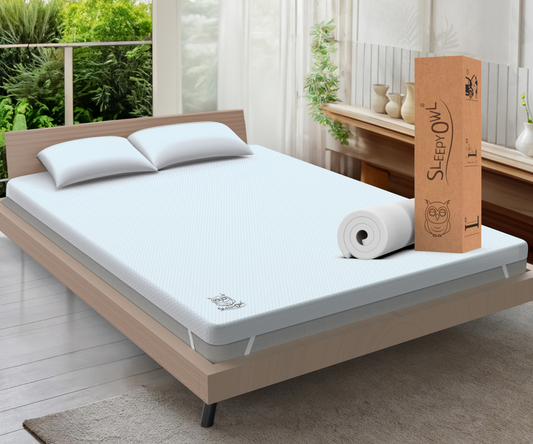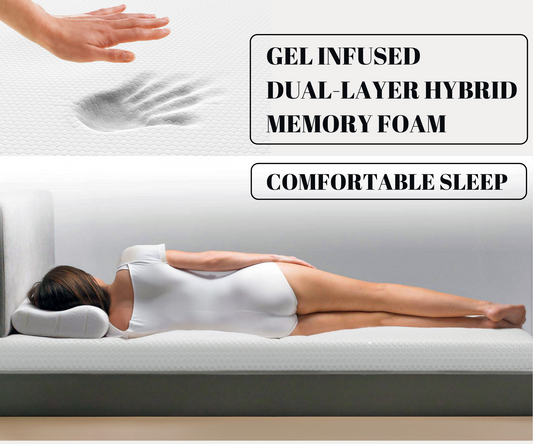How to sleep for 8 hours straight without waking up
Quality sleep is a fundamental pillar of overall health and well-being, often underestimated in its significance. Sleep is not merely a passive state of rest; it is an active process that plays a crucial role in physical health, mental clarity, and emotional stability. During sleep, the body undergoes various restorative processes, including muscle repair, memory consolidation, and hormone regulation.
For instance, the release of growth hormone during deep sleep is essential for tissue growth and muscle development, while REM sleep is critical for cognitive functions such as learning and memory retention. A lack of quality sleep can lead to a myriad of health issues, including obesity, diabetes, cardiovascular diseases, and weakened immune function. Moreover, the impact of sleep extends beyond physical health; it significantly influences mental health as well.
Insufficient sleep can exacerbate conditions such as anxiety and depression, leading to a vicious cycle where poor mental health further disrupts sleep patterns. Research has shown that individuals who consistently get less than seven hours of sleep per night are at a higher risk for developing mood disorders. The cognitive impairments associated with sleep deprivation can also affect decision-making, problem-solving abilities, and emotional regulation.
Thus, understanding the importance of quality sleep is paramount for anyone seeking to enhance their overall quality of life. Check out this amazing Memory Foam Mattress Topper for a better night's sleep.
Creating a Comfortable Sleep Environment
The environment in which one sleeps can greatly influence the quality of rest achieved. A comfortable sleep environment is characterized by several key factors, including temperature, noise levels, and lighting. Ideally, the bedroom should be kept cool, as studies suggest that a temperature range between 60 to 67 degrees Fahrenheit is optimal for sleep.
This cooler environment helps lower the body's core temperature, signaling that it is time to rest. Additionally, minimizing noise disruptions is crucial; even subtle sounds can interrupt the sleep cycle and prevent individuals from reaching deeper stages of restorative sleep. Utilizing soundproofing techniques or white noise machines can be effective strategies for creating a more serene sleeping atmosphere.
Lighting also plays a pivotal role in establishing a conducive sleep environment. Exposure to bright lights, particularly blue light emitted from electronic devices, can interfere with the production of melatonin, the hormone responsible for regulating sleep-wake cycles. To promote better sleep hygiene, it is advisable to dim the lights in the evening and consider blackout curtains to eliminate external light sources.
Furthermore, incorporating elements that promote relaxation—such as soft bedding, calming colors on the walls, and minimal clutter—can enhance the overall ambiance of the bedroom. By thoughtfully curating a comfortable sleep environment, individuals can significantly improve their chances of achieving restorative sleep.
Establishing a Consistent Bedtime Routine
Establishing a consistent bedtime routine is an effective strategy for signaling to the body that it is time to wind down and prepare for sleep. A predictable routine helps regulate the body's internal clock, making it easier to fall asleep and wake up at the same time each day. This consistency reinforces the natural circadian rhythms that govern sleep patterns.
Engaging in calming activities before bed—such as reading a book, taking a warm bath, or practicing gentle stretches—can help transition the mind and body into a state of relaxation. In addition to promoting relaxation, a bedtime routine can also serve as a cue for the brain to prepare for sleep. For example, if an individual consistently engages in specific activities before bed—like dimming the lights and sipping herbal tea—the brain begins to associate these actions with sleepiness over time.
This association can make it easier to fall asleep when the routine is followed regularly. It is important to note that consistency is key; even on weekends or days off, maintaining a similar sleep schedule can help reinforce healthy sleep habits and prevent disruptions in the body's natural rhythms.
Utilizing Relaxation Techniques
Incorporating relaxation techniques into one's nightly routine can significantly enhance the ability to fall asleep and improve overall sleep quality. Various methods exist to promote relaxation, each catering to different preferences and needs. Mindfulness meditation is one such technique that encourages individuals to focus on their breath and cultivate awareness of their thoughts without judgment.
This practice can help reduce anxiety and racing thoughts that often hinder the ability to fall asleep. Another effective relaxation technique is progressive muscle relaxation (PMR), which involves systematically tensing and then relaxing different muscle groups throughout the body. By focusing on physical sensations and releasing tension, individuals can achieve a state of calmness conducive to sleep.
Deep breathing exercises are also beneficial; techniques such as the 4-7-8 method—where one inhales for four seconds, holds for seven seconds, and exhales for eight seconds—can activate the body's relaxation response and lower heart rates. By integrating these relaxation techniques into their nightly routine, individuals can create a more peaceful transition into sleep.
Incorporating Memory Foam Mattress Topper for Comfort
The choice of bedding significantly impacts sleep quality, and one effective way to enhance comfort is by incorporating a memory foam mattress topper. Memory foam is designed to conform to the body's shape, providing support while alleviating pressure points that can lead to discomfort during the night. This material responds to body heat and weight, allowing it to mold to individual contours and distribute weight evenly across the surface.
As a result, many people experience reduced tossing and turning throughout the night. In addition to comfort, memory foam toppers can also help improve spinal alignment by providing adequate support for various sleeping positions. For side sleepers, a memory foam topper can cushion the shoulders and hips while maintaining proper alignment of the spine.
Back sleepers benefit from the support that keeps their lower back from sinking too deeply into the mattress. Furthermore, many memory foam toppers are designed with cooling technologies that help regulate temperature throughout the night, addressing one common complaint associated with traditional memory foam products. By investing in a quality memory foam mattress topper, individuals can significantly enhance their sleeping experience.
Managing Stress and Anxiety
Stress and anxiety are common barriers to achieving quality sleep; therefore, managing these factors is essential for improving overall restfulness. Chronic stress activates the body's fight-or-flight response, leading to heightened levels of cortisol—a hormone that can disrupt normal sleep patterns when elevated over prolonged periods. To combat this issue, individuals should explore various stress management techniques tailored to their lifestyles.
One effective approach is engaging in regular physical activity, which has been shown to reduce stress levels and promote better sleep quality. Exercise releases endorphins—natural mood lifters—that can alleviate feelings of anxiety and tension. Additionally, practices such as yoga or tai chi combine physical movement with mindfulness techniques, further enhancing relaxation and reducing stress levels.
Journaling is another valuable tool; writing down thoughts or worries before bed can help clear the mind and prevent ruminating thoughts from interfering with sleep.
Limiting Caffeine and Electronic Devices Before Bed
Caffeine consumption in the hours leading up to bedtime can significantly hinder one's ability to fall asleep. As a stimulant, caffeine blocks adenosine receptors in the brain—adenosine being a neurotransmitter that promotes sleepiness. The half-life of caffeine varies among individuals but generally ranges from three to seven hours; thus, consuming caffeinated beverages too close to bedtime can lead to difficulties in falling asleep or staying asleep throughout the night.
To promote better sleep hygiene, it is advisable to limit caffeine intake in the afternoon and evening. In addition to caffeine consumption, exposure to electronic devices before bed poses another challenge for achieving quality sleep. The blue light emitted by screens—found in smartphones, tablets, computers, and televisions—can interfere with melatonin production and disrupt circadian rhythms.
To mitigate this effect, individuals should aim to establish a digital curfew by turning off electronic devices at least an hour before bedtime. Instead of scrolling through social media or watching television, engaging in calming activities such as reading a physical book or practicing relaxation techniques can create a more conducive environment for restful sleep.
Seeking Professional Help if Necessary
While many strategies exist for improving sleep quality independently, there are instances where professional help may be necessary. Individuals who consistently struggle with insomnia or other sleep disorders may benefit from consulting with healthcare professionals specializing in sleep medicine. These experts can conduct comprehensive evaluations to identify underlying issues contributing to poor sleep quality—such as medical conditions or psychological factors—and recommend appropriate treatment options.
Cognitive Behavioral Therapy for Insomnia (CBT-I) is one evidence-based approach that has proven effective in treating chronic insomnia. This therapy focuses on changing negative thought patterns and behaviors related to sleep while teaching practical skills for improving sleep hygiene. In some cases, medication may be prescribed as part of a comprehensive treatment plan; however, this should be approached cautiously due to potential side effects and dependency issues associated with long-term use of sleeping pills.
Seeking professional help when necessary ensures that individuals receive tailored support in their journey toward achieving better quality sleep and overall well-being.
FAQs
What are the benefits of sleeping for 8 hours straight?
Sleeping for 8 hours straight allows your body to go through all the necessary sleep cycles, which can improve memory, mood, and overall cognitive function. It also gives your body time to repair and rejuvenate, leading to better physical health.
How can I create a sleep-friendly environment?
To create a sleep-friendly environment, make sure your bedroom is dark, quiet, and at a comfortable temperature. Consider using blackout curtains, white noise machines, or earplugs to block out any disturbances.
What are some tips for falling asleep and staying asleep for 8 hours?
Establish a regular sleep schedule, avoid caffeine and electronics before bed, and engage in relaxation techniques such as deep breathing or meditation. It's also important to limit alcohol consumption and exercise regularly to improve sleep quality.
What should I do if I wake up during the night?
If you wake up during the night, try to avoid looking at the clock and resist the urge to check your phone. Instead, practice relaxation techniques and focus on calming your mind to help you fall back asleep.
Are there any medical conditions that can affect my ability to sleep for 8 hours straight?
Yes, medical conditions such as sleep apnea, insomnia, and restless leg syndrome can all impact your ability to sleep for 8 hours straight. If you suspect you have a sleep disorder, it's important to consult with a healthcare professional for proper diagnosis and treatment.


